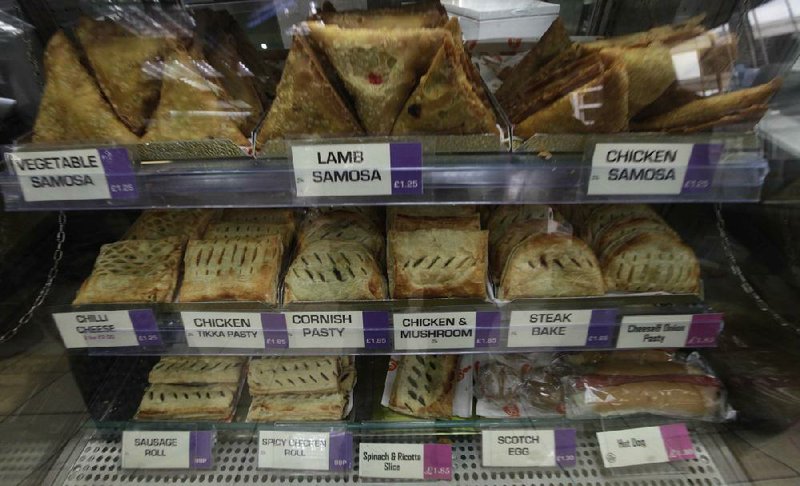LONDON — Britain’s government has cooled on its plan to impose a new sales tax on hot savory snacks, including the humble Cornish pasty and sausage roll, after being criticized for unfairly attacking the poor.
The country’s Treasury confirmed Tuesday that it has amended plans announced in March’s annual budget to eliminate a provision that had allowed some heated takeout items to escape a 20 percent sales tax.
Ministers repeatedly said the plan was necessary to raise new revenue, and to get the tax on snacks in line with the levies imposed on the nation’s other favorite takeout dish, fish and chips.
Under the new plan the Treasury intends to levy a 20 percent sales tax only on cooked pies and pasties, which are then kept hot intentionally. However, it won’t apply to baked goods that are sold after leaving the oven, but happen to still be warm.
Under the original plans, cold items were always intended to be sold without having the sales tax added.
The savory treat, a combination of meat and vegetables carried in a pastry crust, is synonymous with Britain’s working class, and is said to have been invented as a lunch dish for tin miners in Cornwall, southwestern England.
While Prime Minister David Cameron declared himself “a pasty eater,” he wasn’t clear on where exactly he had last purchased one of the hot snacks.
Chris Leslie, a lawmaker and economic spokesman for the main opposition Labor Party, said the government had bowed to public pressure.
“They are not U-turning out of the kindness of theirhearts, it is because they are being forced to do so,” Leslie said. “What a chaotic way to run a country.”
Bakery chain Greggs PLC welcomed the development. Its chief executive, Ken Mc-Meikan, said the change was “fantastic news for the customer” and claimed it would safeguard jobs. Greggs share price was up nearly 7 percent on the news.
Front Section, Pages 6 on 05/31/2012
